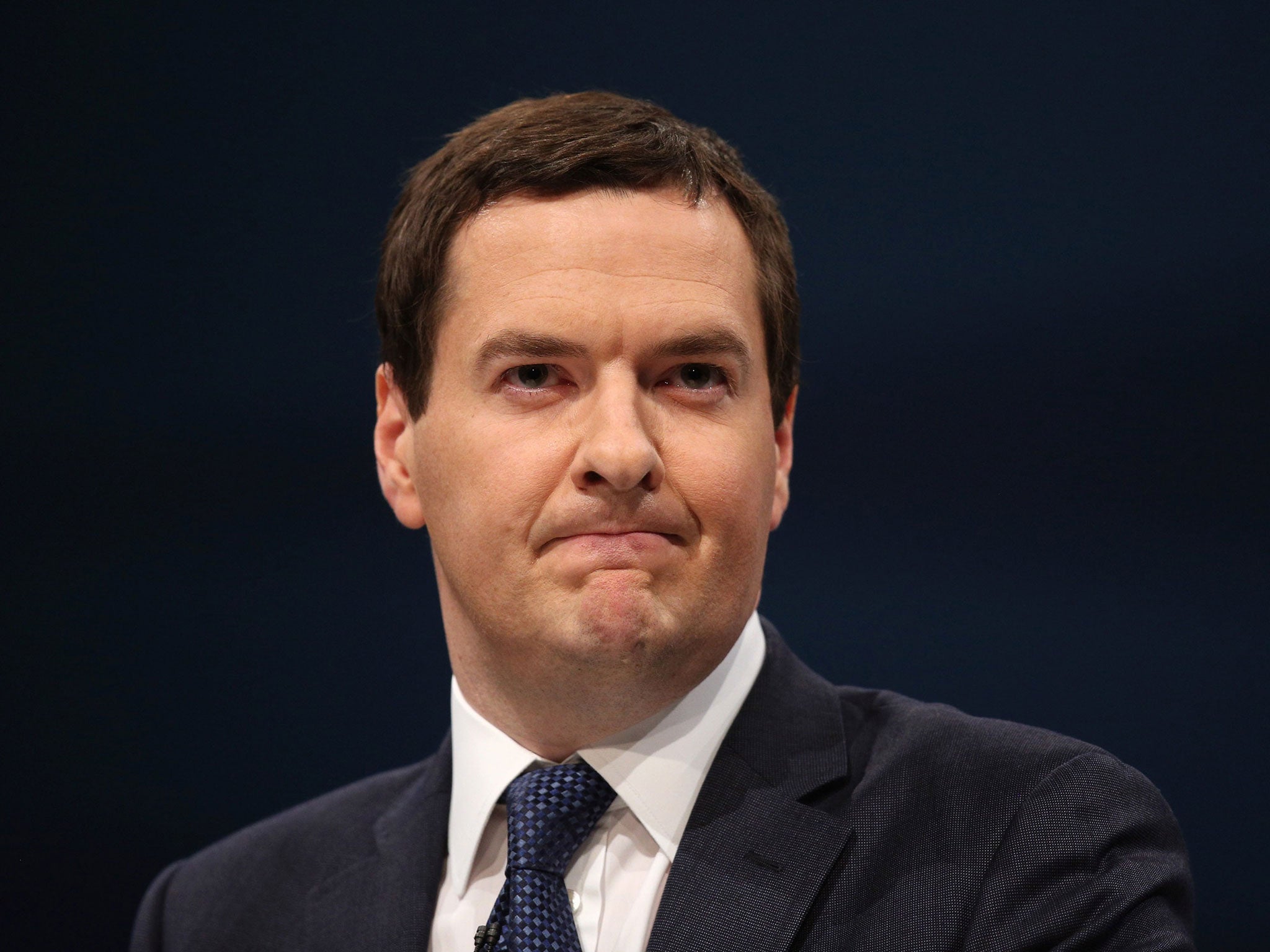Autumn statement: 6 ways George Osborne is going to try and trick you
Here are some of the accounting tricks the Chancellor might try and pull

“I’m afraid there is no money,” Liam Byrne, Labour’s Chief Treasury Secretary, wrote in a now-famous note left for his successor in 2010. Four and a half years on, not much has changed for the current Treasury team.
With borrowing still running at around £90bn a year, George Osborne will have very little money to play with tomorrow, when he makes his last autumn statement before next May’s election. The Chancellor is behind schedule in cutting the deficit, and yet he and his Liberal Democrat deputy Danny Alexander appear to have been splashing the cash around in the run-up to the Commons statement – perhaps knowing that the borrowing figures will produce bad headlines on the day.
How have they managed to find the money? They have borrowed some of Gordon Brown’s old conjuring tricks during his 10 years at the Treasury – and added a few of their own.
Here are six ways in which Mr Osborne and Mr Alexander may try to pull the wool over the voters’ eyes.
Recycling: this is not about household rubbish, but re-announcing popular measures that we have heard before. A £15bn road-building programme won big headlines on Monday, but was announced by David Cameron to the CBI conference last month.
Double counting: an old Brown habit of “announcing” projects as new when the money for them has already been allocated. A good example was the £2.3bn package of flood defences announced today.
Spreading the jam: by packaging up money to be spent over several years, headlines sometimes give the impression of an immediate cash boost. The £2.3bn to be spent on flooding is part of a “£400bn national infrastructure plan” unveiled today - but it will span the next six years.
Shuffling the money around: an old Treasury trick is to move cash from one budget heading to another and trumpeting it as new. Mr Osborne announced a £2bn boost for the NHS on Sunday. But £750m of it is being reallocated from within the existing health budget - and the rest comes from underspending by other Whitehall departments.
Moving the goalposts: Ministers say they have cut the annual deficit - the difference between the Government’s income and spending - by a third. Mr Osborne will probably say it will be halved by the election. But the job was supposed to have been done completely by then according to his own promises.
Comparing apples and pears: a useful device when talking about sensitive spending cuts. The highly respected Institute for Fiscal Studies has criticised Mr Cameron for saying the Government has made £100bn of savings and has a further £25bn to go, saying he used an inconsistent definition of “savings”.
Join our commenting forum
Join thought-provoking conversations, follow other Independent readers and see their replies
Comments